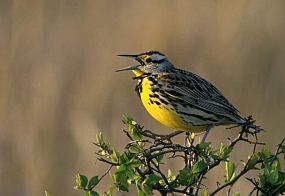 Certain memes travel around the Godblogosphere in curious outbreaks. It’s as if a dozen people at once blog on the same subject without any prior knowledge of each other’s posts. Someone like me who reads blogs via an aggregator sees the impression of oddness double when so many of my regular reads are talking about the same point of doctrine.
Certain memes travel around the Godblogosphere in curious outbreaks. It’s as if a dozen people at once blog on the same subject without any prior knowledge of each other’s posts. Someone like me who reads blogs via an aggregator sees the impression of oddness double when so many of my regular reads are talking about the same point of doctrine.
Recently, there’s been a rash of Word-of-Faith postings out there, most of them negative. Brad at The Broken Messenger and Steve Camp at Camp on This are two that recently addressed this topic, Brad with “Word of Faith” and Steve with “Stupid People in the Church…and How Not to Be One.” I suspect that their reaction must be to the recently posted list of 50 most influential Christians that was curiously stacked with a large number of Word of Faith’ers. (Perhaps those on the list are being blessed the way they pray they will be! – Ha! Ha!)
I’ll come right out an say that I’m not a Word-of-Faith guy even though I go to a Pentecostal church, a familiar haunt for such folks. I regularly “must…restrain…the fist…of death” when listening to prosperity Gospel acolytes, but I’m also perturbed when I read something on the other side of the fence that seems resigned to whatever fate one has befallen. Steve Camp here:
What is the N.T. formula for “success” or “prosperity?” Paul gives us the clear biblical answer in 1 Timothy 6:6, “…godliness, plus contentment is great gain.” Are you living a godly life in accordance with the Word of God; are you content with what you have from the Lord—not seeking more or complaining of less? Then the Lord calls that, “great gain.”
I’m not sure an entire theology of God’s provision can be wrapped up in a portion of one verse. I’m sure that Steve Camp would tend to agree with that point. But what of his argument then? First of all, I think there’s “contentment” and then there’s “contentment with exception.”
A survey of the Bible contains person after person who cherished God, but there were a few lacks in their lives and they sought God to change their situations. One obvious example is Hannah. Barren and desperate for a child, she pleads before God and He blesses her with the future great leader of His people, Samuel. We saw the same request earlier in Rachel, likewise barren, who also petitioned God and was blessed with a son, Joseph, who grew up to save the lives of thousands, including his own family. And Mary’s cousin, Elizabeth, whose barren womb was opened to give Christ the Elijah that would prepare His way. Three women, none content in their childlessness.
Samson was not content with his role as a blind Philistine toy, but prayed to God that he would be granted one last curtain call, and with it he brought the house down—literally. Solomon was not content with his position as king as long as he was lacking the one thing he knew he needed to govern, wisdom. Jacob was not content with the wife he’d been fooled into accepting. If Lot had been 100% content with his lot, would he have fled Sodom at the Lord’s urging? Would Paul have cast out the spirit of divination from the slave girl who followed him around in Acts 16? Would the centurion have asked Jesus to heal his slave? Or Mary and Martha requested that Jesus come see their dying brother?
Lack of contentment, in many cases, is what drove great men and women of the Bible to pray big prayers and expect big things. But even the nameless people were not always content with their station in life. Lepers, the blind, and the lame all came to Jesus and asked for healing because they were not content with being infirm or diseased the rest of their days. Contentment does not mean resignation, but too often I see Christians treating it as if it were such. Being content means always keeping our eyes fixed on Christ, but it does not mean being a doormat for every lousy happenstance that comes our way. As Jesus Himself said:
Ask, and it will be given to you; seek, and you will find; knock, and it will be opened to you. For everyone who asks receives, and the one who seeks finds, and to the one who knocks it will be opened. Or which one of you, if his son asks him for bread, will give him a stone? Or if he asks for a fish, will give him a serpent? If you then, who are evil, know how to give good gifts to your children, how much more will your Father who is in heaven give good things to those who ask him!
—Matthew 7:7-11 ESV
I think the lesson here is that God is not against us petitioning Him because of a heart longing. John Knox in his zeal for souls went so far as to pray, “Give me Scotland or I die!” That doesn’t sound like someone who’s perfectly content. God honored Knox’s bold discontent.
I don’t believe the only kind of prayer that God answers is one for salvation for others, though. As I noted above, Christ healed and gave us the gift of healing. There’d be no reason for such a gift if people were to always be satisfied with illness. It seems to me that too many of us take God’s promises too lightly. We say that we believe the Bible, but then we start making excuses when it comes to certain promises. However, promises of God are not to be taken lightly. Take for instance the following:
You [God] keep him in perfect peace whose mind is stayed on you, because he trusts in you.
—Isaiah 26:3 ESV
Simple, right? Who out there does not believe this verse? Now what about this?
Who is like the LORD our God, who is seated on high, who looks far down on the heavens and the earth? He raises the poor from the dust and lifts the needy from the ash heap, to make them sit with princes, with the princes of his people. He gives the barren woman a home, making her the joyous mother of children. Praise the LORD!
—Psalms 113:5-9 ESV
Much harder, right? Do we believe that God raises the poor up to sit with princes? Do we believe that God gives the barren woman children? Why are we so quick to believe the promise in Isaiah 26 and not the promise in Psalm 113? Did that passage pass away with the coming of the New Testament? Should we chuck the Old Testament because the New replaced it entirely and it no longer contains the accurate truth about what God promises? Certainly not!
I said earlier that there was a difference between contentment and contentment with exceptions, and this is the key to knowing what to ask God for and how. The state of one’s heart must always be centered on Christ or else what we ask for is meaningless. As James writes:
What causes quarrels and what causes fights among you? Is it not this, that your passions are at war within you? You desire and do not have, so you murder. You covet and cannot obtain, so you fight and quarrel. You do not have, because you do not ask. You ask and do not receive, because you ask wrongly, to spend it on your passions.
—James 4:1-3 ESV
Paul’s infamous thorn in the flesh is allowed to continue for the very reason that it kept him from becoming too prideful, what with all the amazing visions and healings that happened around him. So even a man of God as extraordinary as Paul can fall prey to passions that can undo him, just as James notes. Pride may have always been Paul’s chink in the armor, given that he was highly educated, a Pharisee, and a Roman citizen, all distinctly lacking in the other apostles.
So I don’t believe that Paul’s thorn is a prooftext for claiming that all requests for personal help go unanswered. Too many people claim just that and they derail the kind of faith that believes God’s promises as they are written. The Word of Faith’ers stumble because they often fall prey to what James describes. Nor are they always asking with their eyes on Jesus alone. Yet as much as their antics are a disgrace, they do a better job than some of us at taking God at His word.
In conclusion, the hymn “Standing on the Promises of God” and an appropriate promise of God:
Standing on the promises of Christ my King,
Through eternal ages let His praises ring,
Glory in the highest, I will shout and sing,
Standing on the promises of God.Standing, standing,
Standing on the promises of God my Savior;
Standing, standing,
I’m standing on the promises of God.Standing on the promises that cannot fail,
When the howling storms of doubt and fear assail,
By the living Word of God I shall prevail,
Standing on the promises of God.Standing on the promises I now can see
Perfect, present cleansing in the blood for me;
Standing in the liberty where Christ makes free,
Standing on the promises of God.Standing on the promises of Christ the Lord,
Bound to Him eternally by love’s strong cord,
Overcoming daily with the Spirit’s sword,
Standing on the promises of God.Standing on the promises I cannot fall,
Listening every moment to the Spirit’s call
Resting in my Savior as my all in all,
Standing on the promises of God.
God is not man, that he should lie, or a son of man, that he should change his mind. Has he said, and will he not do it? Or has he spoken, and will he not fulfill it?
—Numbers 23:19 ESV

 Ingrid over at
Ingrid over at 